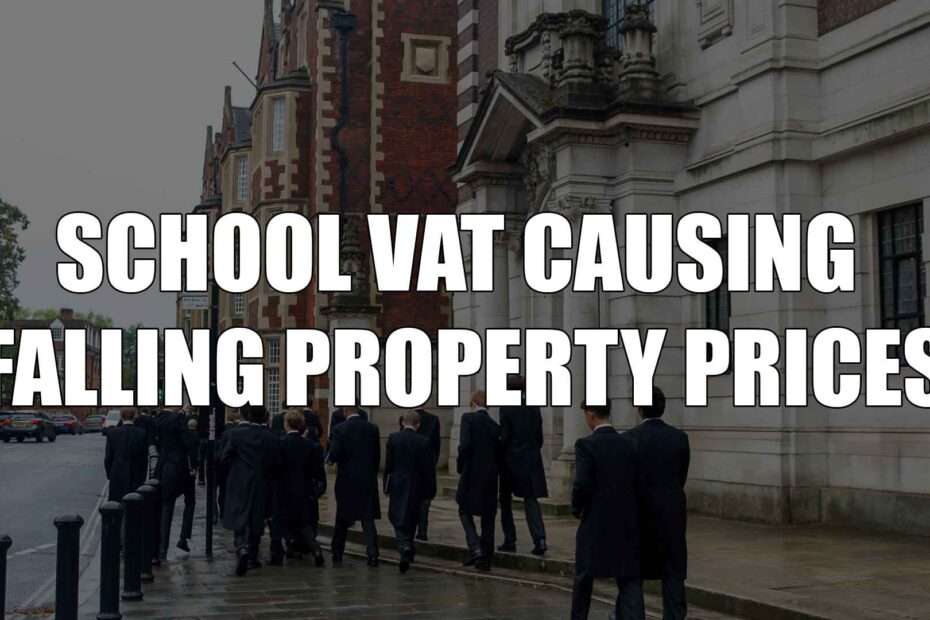School VAT causing falling property prices
The Affluent Areas Poised to Experience a Property Price Decline from Labour’s Schools VAT Initiative
Certain homeowners confront a potential decrease of £184,000 as a ‘perfect storm’ of escalated expenses impacts families across the nation.
Labour’s private school taxation strategy will precipitate a reduction in property values within affluent London neighbourhoods, according to industry specialists.
Escalated school fees are anticipated to compel financially stretched homeowners to depart from the capital’s verdant boroughs in pursuit of more economically viable properties and educational establishments.
Estate agents and mortgage consultants have cautioned that housing demand would experience a considerable decline consequently.
The typical value of a residence in prime central London presently stands at £4.6m; however, this figure is projected to diminish by 4pc in 2025, as per property consultancy Savills. In practical terms, this equates to a reduction of £184,000.
In outer prime London, residential property valuations are expected to maintain stability at their current level of £1.8m. By contrast, property hotspots beyond the capital are forecasted to appreciate by 2pc, according to Savills’ analysis.
This trajectory is influenced by a confluence of adverse factors including heightened taxation, increased mortgage rates, and the gradual phasing out of the “non-dom” tax framework preferred by affluent international taxpayers – many of whom maintain residences in central London.
Nevertheless, Lucian Cook, who serves as the head of residential research at Savills, indicated that elevated private school fees were similarly likely to suppress house prices in residential districts such as Islington, Hampstead and Chiswick.
He further noted that additional regional markets would potentially benefit from “displaced demand” as families migrate away from the capital in search of more affordable alternatives.
Mr Cook elaborated: “Individuals who over the past twelve to eighteen months have witnessed an increase in their mortgage expenses will postpone their plans to ascend the property ladder, and instead address school fees as a priority.
“Others for whom financial pressures present more acute challenges may opt to relocate to capitalise on reduced house prices and to secure placements in more affordable private schools or high-quality state educational institutions.”
Private educational establishments increased their fees this term following Sir Keir Starmer’s determination to implement 20pc VAT effective from 1st January.
Analysis conducted by The Telegraph reveals that the average private school fee has surged by 14pc, representing the most substantial annual increase in more than four decades.
This rise corresponds to an additional £2,600 per annum for day pupil fees, elevating them to an average of £21,800 yearly.
For boarding pupils, the increase would amount to £6,200 annually, based on the current average yearly fees as reported by the Independent Schools Council, which represents approximately 1,200 private educational institutions across the country.
Karen Noye, a mortgage specialist at wealth management firm Quilter, commented: “The introduction of VAT on private school fees is poised to impose considerable pressure on family finances, particularly in prime central London, where private education frequently correlates with elevated property values.
“This financial burden is likely to prompt certain parents to reassess their living arrangements, potentially liberating equity in their properties through selling and relocating to more economically viable areas.
“As these families endeavour to mitigate the impact of escalating school expenses, we might observe a cooling effect on house prices in prime central London and other premium areas throughout the country, with increased property supply from those exiting the market.
“Simultaneously, suburban districts and commuter zones could potentially experience heightened demand as families seek improved value whilst maintaining efficient transport connections to central hubs.”
The repercussions of Labour’s educational policy changes extend beyond merely the immediate financial implications for families with children in private education. The property market, particularly in traditionally affluent areas, stands to undergo significant transformation as priorities shift and financial calculations are reconsidered by numerous households.
Estate agents across London’s most prestigious neighbourhoods report preliminary indications of heightened property listings, as families begin the process of financial recalibration in anticipation of substantially increased educational expenses. This trend is most pronounced in areas where the concentration of families utilising private education is particularly high.
Financial advisers specialising in high-net-worth individuals have noted a marked increase in consultations regarding comprehensive financial restructuring, with property decisions forming a central component of these discussions. The traditional equation balancing London property ownership with private education is being fundamentally rewritten for many families.
The geographical implications of this shift could prove substantial, with certain regional centres potentially experiencing unexpected property market buoyancy as London emigrants seek comparable educational opportunities at reduced costs. Cities and towns boasting well-regarded state schools or more moderately priced private institutions may witness particular benefit from this demographic movement.
Property market analysts suggest that this reconfiguration could potentially represent the most significant demographically-driven property market shift in decades, with implications extending well beyond the immediate term. The ripple effects may continue to influence property valuations across various regions for years to come, as educational considerations increasingly drive residential decisions.
For prospective property purchasers currently considering investments in traditionally affluent London neighbourhoods, timing considerations have become increasingly complex. While potential price reductions may present attractive entry opportunities, the fundamental market dynamics driving these changes warrant careful consideration regarding long-term value prospects.
Furthermore, local businesses and service providers in affected areas may experience consequential impacts as the demographic composition potentially undergoes transformation. The intricate ecosystem of services catering to affluent families may require adaptation to evolving market conditions.
The confluence of these varied factors creates a property market landscape characterised by unprecedented complexity, with traditional certainties regarding prime London property investment increasingly subject to reconsideration in light of changing fiscal and educational parameters.

